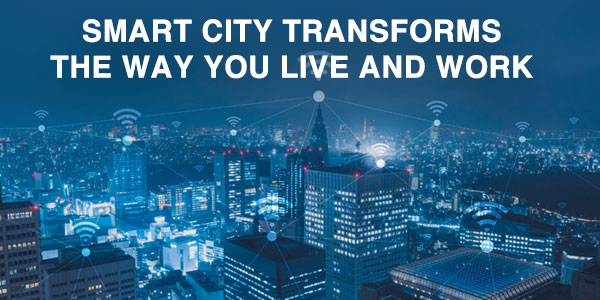“Smart Cities Mission”, is of greater importance to the citizens as well as to the government, it is a term that has been in news for a very long time now. Through this blog, let us understand why is this mission so important, why has it gained so much momentum over time?
The concept of “Smart Cities” has different notions for different people, across different geographies. The definition keeps changing according to the different needs of different cities. The government has launched this mission to deal with the challenge of rapid urbanization. Through this mission, they seek to develop the cities in terms of infrastructure.
The concept of “Smart Cities” is intended at implementing the government’s vision of advanced and modern urbanization. Thanks to the inadequate monitoring and responsiveness. As per the plan, electricity, sewerage, storm-water drainage, and water supply will be reinforced in newly built Smart Cities, mitigating the stress that the large-scale housing projects have been consistently creating on a city’s infrastructure. The government is aiming at developing around 100 cities and making them citizen-friendly and sustainable. This falls in line with providing ample living space and investment opportunities for the infrastructure sector in India.
There are some fundamental objectives listed by the government that they seek to achieve through this mission:
- Housing and inclusiveness – ensuring housing is accessible to all
- Reducing congestion, air pollution, resource depletion, and boosting the local economy, promoting interactions and ensuring security
- Constructing road networks keeping in view the safety of pedestrians and cyclists
- Constructing playgrounds, and recreational spaces in order to enhance the quality of life of citizens
- Increasing reliability of online services to bring about accountability and transparency.
Formation of e-groups to listen to people and get their authentic feedback, and use online programs for monitoring progress.
- Working towards building each city’s own identity basis its uniqueness, be it local cuisine, art, and craft, culture, hosiery, textile, etc
- Making cities less vulnerable to disasters, using lesser resources, and providing services at a lower cost
- Robust IT connectivity and digitalization
- Proper sanitation, along with solid waste management
- Sustainable environment
- Safety of citizens by installing a camera in every nook and corner.
. This, in turn, will create employment opportunities and contribute to economic growth through innovation. The quality of life our future generations will lead highly depends upon how smartly we build, manage and operate our cities. We are answerable to our future generations to make our cities smart through the use of technology. How well would they lead their life, what all resources would be available at their disposal would depend on how judicially and smartly do we make use of the available resources and what all would we do to prevent them.
Hence, the implementation and success of the “Smart Cities” project have become vital for us. Once successfully built, the smart cities will be totally technology-driven, self-sufficient and autonomous. We can rely on this project and can expect an improvement in our quality of life.












